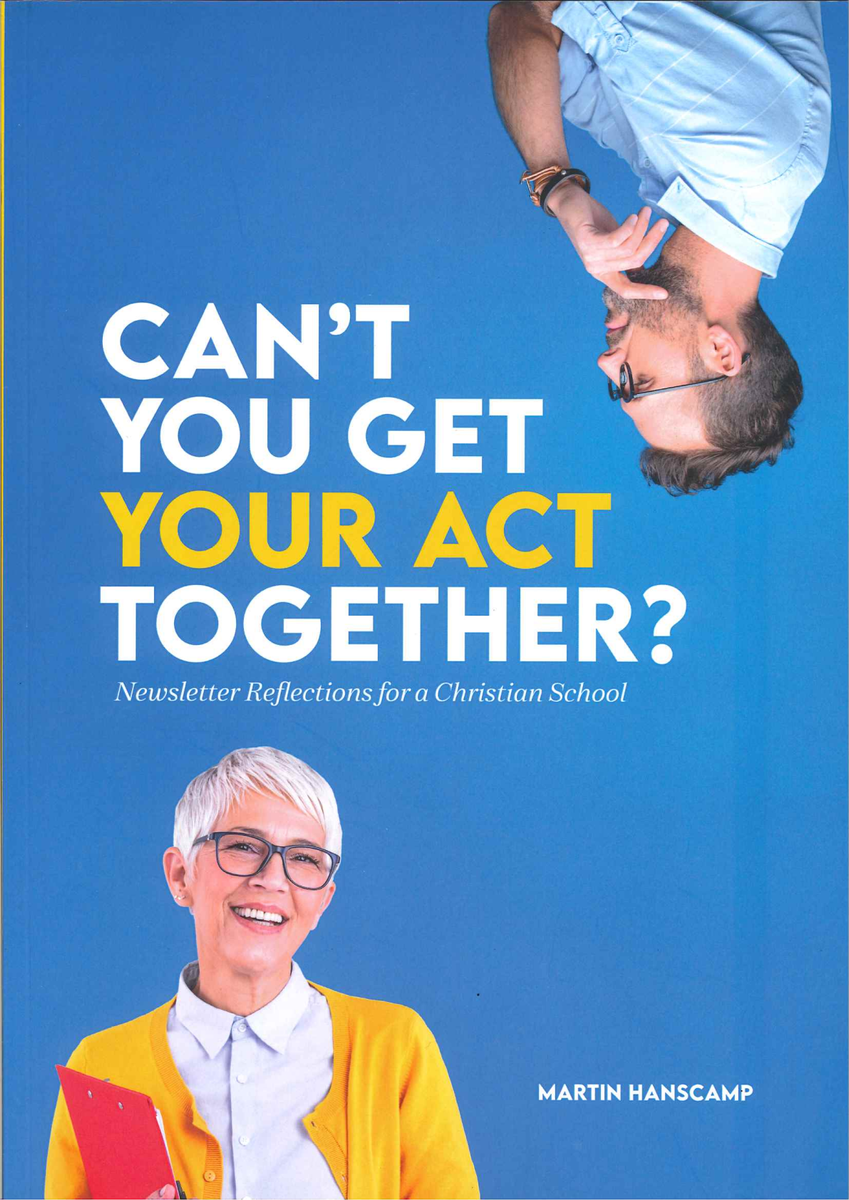From the Principal

'The Emperor's Club'
Who leads the 'shaping'?
The late Martin Hanscamp compiled a collection of newsletter reflections as one of the last writing assignments he completed before he went to be with His Lord and Saviour after a long battle with prostate cancer.
This collection of pearls of wisdom is an inspiring read and I want to share one of these reflections with you in this Herald.
It addresses the topic of partnership with parents and whose role it is to shape and mould.
I hope our parents and our staff are equally inspired and challenged by what Martin has to share.
'The Emperor's Club'
Who leads in shaping?
I recently watched a great movie called The Emperor's Club where Kevin Kline plays the teacher, Mr Hindit, and takes up the role of inspiring his senior students in the study of history, particularly the Roman Empire. It's one of those American 'feel good' teacher movies.
Actually, as I pause to think, I suspect that teachers who watch these movies don't feel that good at all, afterwards. When I watch Robin Williams in Dead Poet's Society, I'm moved to be a little more like him. If you were a teacher, wouldn't you like to stir something in students' hearts that inspires them to learn and stand on desks? Every teacher has that sort of zeal, at least when they start off. The only problem is, I can't be like that. It's so audaciously silly to think that one teacher using all those sorts of amazing gifts
of inspiration (usually indifferent to the rest of the team that they are a part of) can break through all the normal obstacles and be the 'pearls of understanding' stirrer, notwithstanding that some unique teachers are spell-bounding, memorable and inspiring. The realisation that this cannot possibly be me, then becomes more disempowering than inspiring.
Before I get to the point of this little editorial, let me comment on one other aspect of this film genre. Have you noticed the 'view of learning' being shown in many of these movies? In The Emperor's Club we see the mindless regurgitation (a 'mugs and jugs' view) of endless historical data that draws the applause of the rest of the class. No doubt the winner has excellent recall, a fantastic cranial filing cabinet and 'memory crunched' very hard. However, for what point? According to Mr Hindit, it's that these giants of history the statesman and philosophers - are an inspiration to us today ('inspirationalist' view) and our political system has been built on the foundations of the Greeks and the Romans. Yes, some of that's fair enough. To have an understanding of the foundations and what great people have contributed is useful, of course, but l'd suggest our view of learning is even richer than that.
However, I distract myself..... The Emperor's Club. The reason for using this picture, is to draw out the issue of 'who shapes?' Let me explain.
Mr Hindit is deeply committed to inspiring his students to learn well and he has one student, Sedgwick, who shows potential but is languishing. A brilliant scene follows where Mr Hindit visits Sedgwick's father. The dad is a high-powered US senator without a lot of time for his son, but who has high expectations of what this elite school will achieve for his prodigy. The highly committed teacher is going the extra mile by seeking to draw the parent into providing insight about the 'languish' and to be more actively involved and supportive.
Mr Hindit points out that Sedgwick isn't doing so well. The father asks what and why they're studying... "We're studying the greats of history so that this might inspire and help to mould your son".
But you will not... you will not mould my son. I will"!
Indignantly the father responds, "Moulds? Moulds? You! You sir, will teach my son his times tables and why the world is round and who killed who and when and where. But you will not...you will not mould my son. I will"!
It's a great scene and worth the watch. Who's side are you on? The father's or the teacher's? Whose responsibility is it to 'mould' or to "shape'? I felt like joining Mr Hindit because he's the good guy, but in the end, I think the father is right.
In the way the movie pans out, the irony of the father's 'moulding' becomes very evident, but I won't spoil the plot for you. It's a film worth watching.
We'd agree with both parties here (to a measure). Both school and home need to work in partnership and it is critical that the values of both are aligned.
We'd state that God places the responsibility of nurturing children clearly in the laps of parents. This is why we go the extra mile to find a wide range of ways in which we can empower parents in this high calling.

